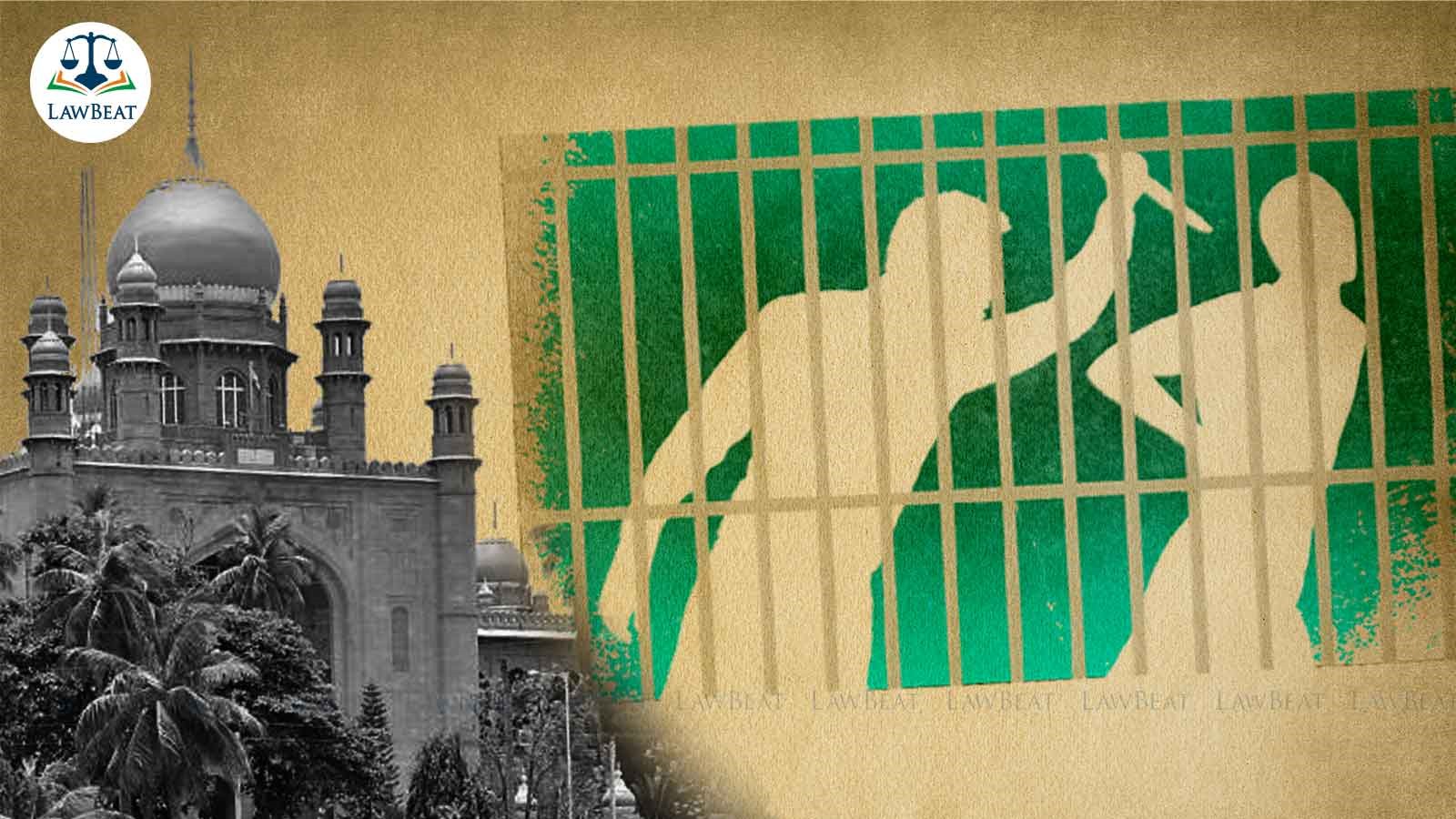Telangana HC asserts State's duty to safeguard rights of prisoners, grants compensation for custodial death

Court held that the state bears the vicarious liability for the safety and well-being of inmates
In a recent judgment highlighting the paramount importance of fundamental rights, the Telangana High Court has reaffirmed that imprisonment does not waive an individual's fundamental right to life and personal liberty, guaranteed under Article 21 of the Indian Constitution.
The court also ruled that the authorities are duty bound to protect the life and safety of those in custody and they are “not absolved of this responsibility merely because the prisoners had been convicted by a Court of law and were serving sentence.”
The bench, led by Justice C.V. Bhaskar Reddy, has ordered the awarding of compensation of over 6 lakh rupees to the family of a deceased inmate, highlighting the state's obligation to ensure the life and safety of all prisoners, irrespective of their legal status.
The case revolved around the petitioner, Smt. Karolla Jayamma, who sought justice for her husband, Karolla Venkaiah, a convict who met a tragic end within the walls of Central Prison at Cherlapally, Rangareddy District. In the grievous incident that transpired within the confines of the prison, Karolla Venkaiah, who was serving his sentence, met a tragic end on July 4, 2012. This unfortunate event unfolded when a fellow inmate, Dasari Narsimulu, engaged in a violent altercation wielding a sharp object. The attack left Karolla Venkaiah severely wounded, ultimately leading to his demise from the injuries sustained, while under medical care at Gandhi Hospital by 6:30 PM.
The petitioner's argument was rooted in a grievance of profound negligence by the prison authorities. She asserted that “the incident occurred due to gross negligence of the Jail authorities, who failed to prevent the assailant from possessing the sharp weapon while in custody and due to possession of such object.”
The petitioner asserted that her husband's death had caused significant mental and financial hardship, as he was the primary breadwinner for their family. She held the state responsible for his death due to its failure to ensure his safety in custody. Consequently, she requested the court to order the respondents to pay her compensation of Ten lakh rupees for the loss of her husband.
The prosecution argued that the petitioner's husband was serving a life sentence following a conviction under Section 302 r/w 34 IPC when he was fatally attacked by a co-prisoner. They stressed that the incident highlighted severe lapses in security and prisoner safety, holding the jail authorities directly responsible.
The Superintendent of Central Prison, Cherlapally, one of the respondents in the case, filed a counter affidavit, stating that Karolla Venkaiah, was sentenced to life for murder and admitted to Cherlapally on May 11, 2012. Dasari Narsimulu, transferred from Nizamabad Jail, stole scissors and on July 4, 2012, attacked Venkaiah and others while they slept, leading to Venkaiah's death. Following the incident, a case was registered against Narsimulu for the attack.
It was also submitted that the incident was reported to the National Human Rights Commission (NHRC) in New Delhi on July 4, 2012. Following a Magisterial Enquiry conducted by the Collector & District Magistrate of Ranga Reddy District on December 19, 2013, the enquiry report was submitted to the NHRC.
Subsequently, the NHRC directed the Telangana Government to compensate the deceased's next of kin, leading to the payment of Rs. 1 Lakh to Smt. Karrolla Jayamma, the petitioner, on February 15, 2018. Citing the compensation and adherence to Prison Rules, the respondents argued that the writ petition lacked merit and requested its dismissal.
The defence, represented by the Government Pleader for Home, strongly refuted the allegations of negligence. They insisted that all necessary measures and protocols were in place and strictly followed. The defence argued that the unfortunate incident was unforeseeable and isolated, maintaining that the prison staff had not deviated from their duties under the Prison Rules and thus were not liable for the tragic occurrence.
It was also contended that “the State could not be made vicariously responsible for the death of such deceased which occurred on account of the act of the co-prisoner.”
The court observed that the right to life and personal liberty is not relinquished upon incarceration, stating that, “a prisoner, is not denuded of his fundamental rights and is not deprived of his constitutional right guaranteed under Article 21 of the Constitution of India except to the extent he has been deprived of it in accordance with law."
Further, the court pointed out that the state bears the vicarious liability for the safety and well-being of inmates. Referring to the duties of prison officials, the court said, “It is the responsibility of the prison officials to ensure the life and safety of every inmate of the jail including those who may have been convicted and serving sentence.”
The court noted that the prison officials had failed to ensure the safety of the inmates, leading to a breach of their fundamental rights.
In conclusion, the Telangana High Court awarded compensation to the petitioner, Smt. Karolla Jayamma, acknowledging the breach of fundamental rights resulting from the custodial death of her husband.
The court ordered the respondents to pay Rs. 6,20,000 with an interest rate of 6% per annum from the date of the deceased's death, subtracting the previously awarded compensation of Rs. 1,00,000.
Case Title: Smt. Karolla Jayamma vs Government of Andhra Pradesh
